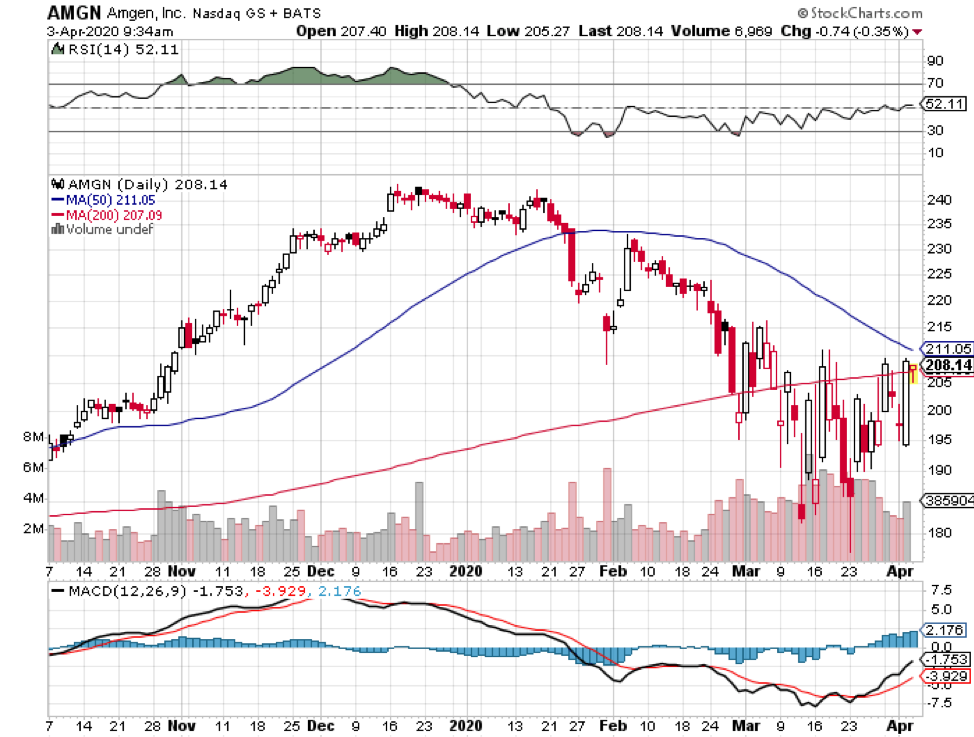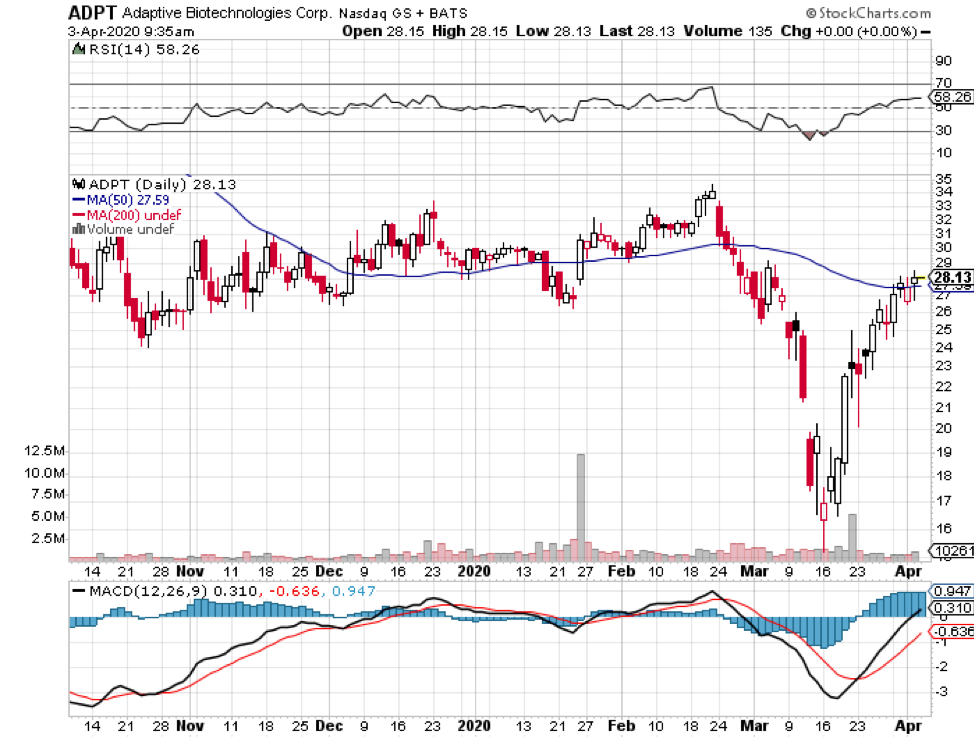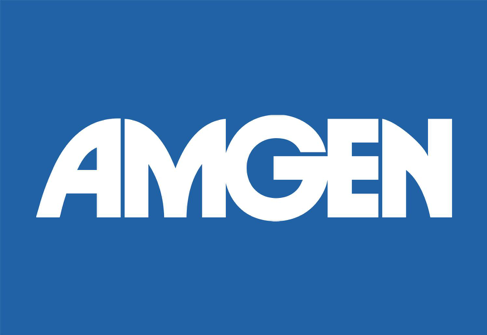Amgen Throws its Hat in the Ring with Covid-19
Another biotech heavyweight, Amgen, has entered the race to find a cure for the deadly coronavirus disease (COVID-19).
Amgen (AMGN) has decided to collaborate with Adaptive Biotechnologies (ADPT) in order to develop a treatment targeting COVID-19. Specifically, the joint effort will rely heavily on Amgen’s immunology expertise combined with Adaptive’s innovative platform used to identify virus-neutralizing antibodies.
The trials will focus on studying the antibodies of individuals who successfully recovered from COVID-19.
Similar to how Biogen (BIIB) and Vir Biotechnology (VIR) handled their collaboration, Amgen and Adaptive also opted to take the plunge even before finalizing all the details of the deal.
Although the urgency of the pandemic is definitely one of the reasons both companies agreed to this setup, another reason could be their history of working together.
Amgen and Adaptive first started collaborating in 2017 when the two companies developed a test for acute lymphoblastic leukemia patients.
In 2019, they expanded their partnership with Amgen utilizing Adaptive’s next-generation sequencing assays for all the blood cancer drugs and even pipeline candidates.
Prior to its partnership with Amgen, Seattle-based Adaptive has been blazing a path in the biotech world. Its biggest claim to fame is its ability to sequence the human immune system.
This is far more challenging than human genome mapping, which only involves 30,000 genes. To sequence the immune system, you would need to look at 100 million genes.
As if that wasn’t challenging enough, Adaptive has also ventured on mapping over 30 billion immune receptors, even owning the data rights to 20 billion of those.
Sensing the potential and the demand from this genetic sequencing system, Microsoft (MSFT) actually offered a collaboration agreement with Adaptive in 2017.
This partnership resulted in a system that can create a universal blood test, which helps doctors read and analyze a patient’s immune system. They will then be able to determine what diseases a person’s body is fighting.
For instance, the body of a cancer patient knows of the threat so its immune system starts fighting the cancer cells. However, this is not immediately known to the doctors, especially without the usual symptoms.
With Adaptive’s system though, the doctors will be able to hack into the immune system of the patient and discover what the body is reacting to. This will allow the doctors to diagnose any disease as early as possible regardless of the appearance of symptoms.
Armed with the information from Adaptive’s test, the doctors will be able to prescribe the right treatments and drugs to boost the patient’s immune system and eventually cure the disease.
Needless to say, Adaptive’s innovative technology would be particularly useful in the fight against COVID-19.
Meanwhile, Amgen seems to be sailing through the economic crisis smoothly.
In fact, this giant biotech even recorded a 1.5% gain in March despite the historic beating suffered by the broader market.
To put things in perspective, the S&P 500, the Dow Jones Industrial Average, and the NASDAQ Composite Index all lost over 10% of their value last month.
In comparison, Amgen was one of the handful of blue-chip stocks to wrap up March on a positive note.
Several factors contributed to Amgen’s resilience amid the pandemic and economic crisis.
One is the company’s newer drugs in the market such as cholesterol treatment Repatha and postmenopausal drug Prolia. Both recorded a double-digit increase in sales for the first quarter of 2020.
Amgen is also banking on the expansion of its blockbuster psoriasis treatment Otezla, which represents a profitable growth space for the company. The worldwide psoriasis market is projected to reach roughly $46.6 billion by 2022.
Apart from these, Amgen has approximately 40 drugs queued in its pipeline with half already in their Phase 3 trials. Obviously, that’s promising news, especially for long-term investors.
The company has been quite optimistic about its performance this year, estimating a minimum 6.8% increase in annual revenue to fall somewhere between $25 billion and $25.6 billion.
Finally, Amgen has been steadily increasing its dividend every year. Just last year, the company paid a yearly dividend worth $5.80 for each share, showing a 10% jump from 2018.
So far, Amgen has proven itself as one of the stocks immune to the COVID-19 threats and even the widely feared economic crisis.
Since the pandemic isn’t anticipated to peter out in the next months, investors will definitely be on the lookout for high-quality businesses capable of paying solid dividends and can still earn despite the ongoing crisis. Amgen manages to tick off both of these crucial boxes.




